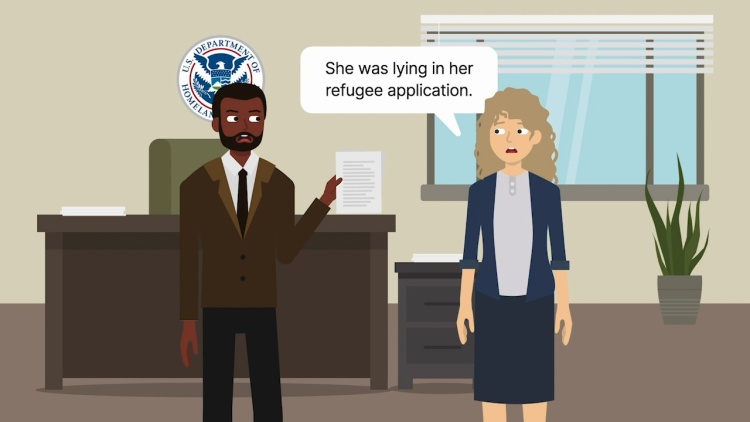Maslenjak v. United States
United States Supreme Court
137 S. Ct. 1918, 198 L. Ed. 2d 460 (2017)

- Written by Rich Walter, JD
Facts
The federal government (plaintiff) prosecuted Divna Maslenjak (defendant) for knowingly and illegally procuring naturalized United States citizenship, in violation of 18 U.S.C. § 1425(a). The trial evidence established that Maslenjak, an ethnic Serb, came to America from Bosnia during the civil war between Bosnian Muslims and Bosnian Serbs. In 1998, Maslenjak obtained refugee status based on her sworn statement that she feared persecution from the Muslims because of her ethnicity, and from the Serbs because her husband had evaded service in the Bosnian Serb army. In 2004, Maslenjak petitioned for naturalization, and entered "no" next to petition-form questions 23 and 24, which asked if she had ever lied to immigration officials. Maslenjak's petition was successful and she became a naturalized citizen. In 2006, however, immigration officials discovered that Maslenjak's 1998 account was a lie: far from evading military service, her husband had been a Bosnian Serb army officer who participated in massacring Bosnian Muslim civilians. Therefore, Maslenjak's false answers to questions 23 and 24 of the naturalization petition violated 18 U.S.C. § 1015(a), which prohibited knowingly making a false sworn statement in a naturalization proceeding. The federal district court judge instructed the jury that it could convict Maslenjak even without proof that her answers to questions 23 and 24 materially influenced the approval of her petition. The jury found Maslenjak guilty, and the judge revoked her citizenship. Maslenjak appealed, and the Sixth Circuit Court of Appeals affirmed the verdict and revocation judgment. The Supreme Court granted certiorari to resolve a circuit split.
Rule of Law
Issue
Holding and Reasoning (Kagan, J.)
What to do next…
Here's why 907,000 law students have relied on our case briefs:
- Written by law professors and practitioners, not other law students. 47,100 briefs, keyed to 996 casebooks. Top-notch customer support.
- The right amount of information, includes the facts, issues, rule of law, holding and reasoning, and any concurrences and dissents.
- Access in your classes, works on your mobile and tablet. Massive library of related video lessons and high quality multiple-choice questions.
- Easy to use, uniform format for every case brief. Written in plain English, not in legalese. Our briefs summarize and simplify; they don’t just repeat the court’s language.





